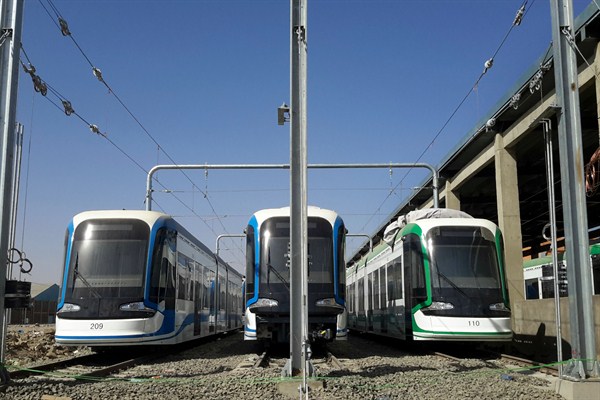Across Africa, there is renewed interest in strengthening infrastructure. In November, the African Development Bank held its “first-ever Programme for Infrastructure Development in Africa Week” in Abidjan, the economic capital of Cote d’Ivoire. The conference emphasized infrastructure, especially transportation and communications, on the continent. Infrastructure development is important not just to economies, but also to politics. In Africa’s two most populous countries, Nigeria and Ethiopia, the politics of infrastructure look very different, but the stakes are equally high for ruling parties.
In Nigeria, questions of infrastructure relate to core dilemmas in Nigerian politics and policy. Since returning to civilian rule in 1999, Nigeria has often experienced rapid economic growth, thanks in large part to oil exports. Despite a rising middle class in the country, however, overall growth rates of 6 percent and higher have not dramatically reduced poverty or created sufficient jobs for the country’s 178 million people. During the presidential election last March, then-President Goodluck Jonathan’s People’s Democratic Party found itself pressed to demonstrate how its 16 years in power had benefited ordinary Nigerians. When the ruling party lost, it was in part due to widespread resentment of its economic management.
The new administration of President Muhammadu Buhari entered office amid economic crisis due to the steep drop in global oil prices, which began long before the election. Buhari initially enjoyed goodwill because of his promises to fight corruption and eliminate widespread government mismanagement. But when he took more than five months to assemble a Cabinet, concerns focused on the overall pace of his administration, and especially on the absence of an economic team. Unemployment, according to official figures, is rising.

